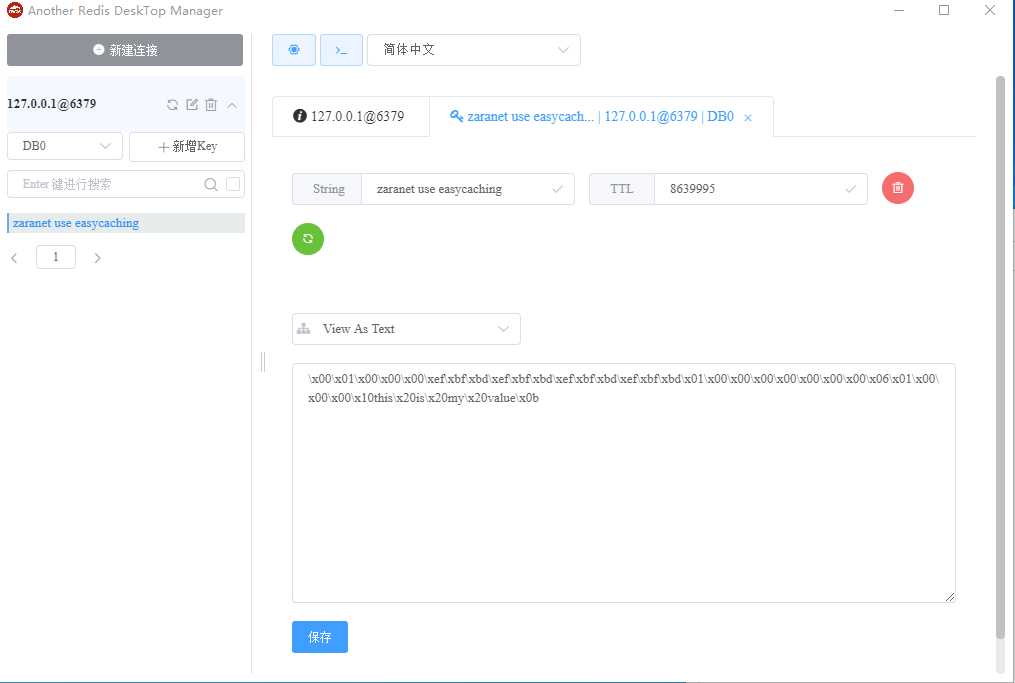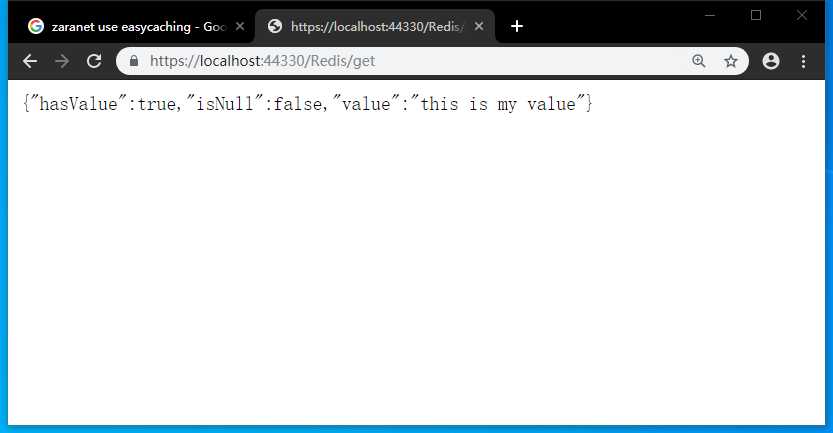三分钟学会Redis在.NET Core中做缓存中间件
2021-02-07 06:18
标签:poi 现在 一个 releases des ons 安装 依赖注入 actor 大家好,今天给大家说明如何在.NET Core中使用Redis,我们在想要辩论程序的好与坏,都想需要一个可视化工具,我经常使用的是一位国内大牛开发的免费工具,其Github地址为: https://github.com/qishibo/AnotherRedisDesktopManager/releases ,它真的很给力,Redis的安装在 https://github.com/MicrosoftArchive/redis/releases,我一般使用的EasyCaching用于做缓存抽象层,首先创建一个.NET Core API 项目,随后nuget安装 EasyCaching.Core 以及 EasyCaching.Redis 。 随后在Startup中注册中间件,首先启动添加EasyCaching的服务,在向启动添加EasyCaching的某些选项,可以看到AddEasyCaching的过程是这样的。 UseRedis 方法的第二个参数,适用于Repository的选择哪个RedisClient实例,这是非常有利的;我们创建一个API,名为 RedisController ,其中依赖注入我们的服务。 点击启动,访问到 https://localhost:port/Redis/Demo 中,使用可视化工具查看,发现OK了。 不光如何,我们我们进行了赋值,现在应该还需要一个获取的操作。 就这样,你就可以在.NET Core中使用Redis去做你觉得有价值的事情,都是非常简单的事情。 转自https://www.cnblogs.com/ZaraNet/p/11837518.html 在注册中间件的时候,如果redis需要密码,可以这样配置 三分钟学会Redis在.NET Core中做缓存中间件 标签:poi 现在 一个 releases des ons 安装 依赖注入 actor 原文地址:https://www.cnblogs.com/Procedure-mice/p/13095106.html
public void ConfigureServices(IServiceCollection services)
{
services.AddEasyCaching(options=> {
options.UseRedis(configure => {
configure.DBConfig.Endpoints.Add(
new EasyCaching.Core.Configurations.ServerEndPoint("localhost",6379)
);
configure.DBConfig.AllowAdmin = true;
},"RedisExample");
});
services.AddControllers();
}

// EasyCaching service collection extensions.
public static class EasyCachingServiceCollectionExtensions
{
public static IServiceCollection AddEasyCaching(this IServiceCollection services, Action

[Route("/Redis")]
[ApiController]
public class RedisController : ControllerBase
{
private IEasyCachingProvider cachingProvider;
private IEasyCachingProviderFactory easyCachingProviderFactory;
public RedisController(IEasyCachingProviderFactory cachingProviderFactory)
{
this.easyCachingProviderFactory = cachingProviderFactory;
this.cachingProvider = cachingProviderFactory.GetCachingProvider("RedisExample");
}
[HttpGet("Demo")]
public IActionResult SetRedisItem()
{
this.cachingProvider.Set("zaranet use easycaching", "this is my value", TimeSpan.FromDays(100));
return Ok();
}
}



[HttpGet("Get")]
public IActionResult GetRedisItem()
{
var item = this.cachingProvider.Get


services.AddEasyCaching(options => {
options.UseRedis(configure => {
//configure.DBConfig.Endpoints.Add(
// new EasyCaching.Core.Configurations.ServerEndPoint("129.211.129.92", 63709)
//);
configure.DBConfig.Configuration = "129.29,password=s";
configure.DBConfig.AllowAdmin = true;
}, "RedisExample");
});